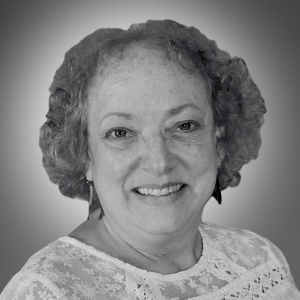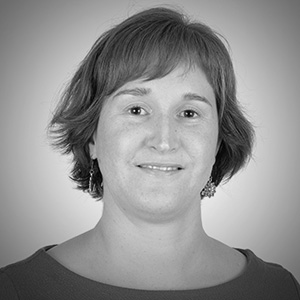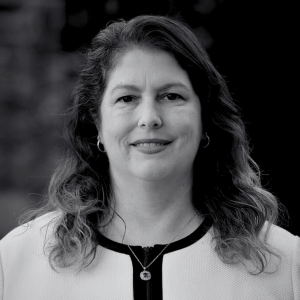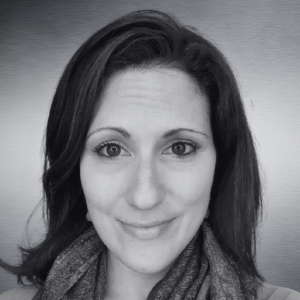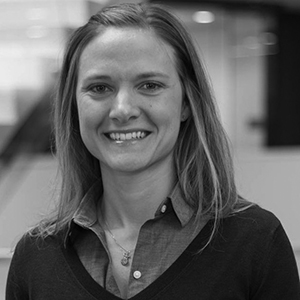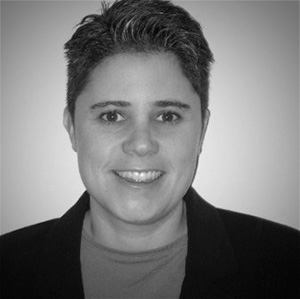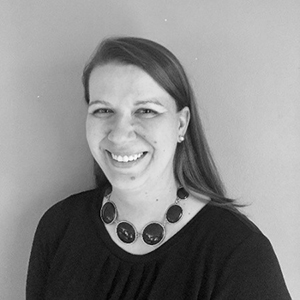Friday, April 5, 2019. Baltimore, MD.
8:55 a.m.
Is this it?
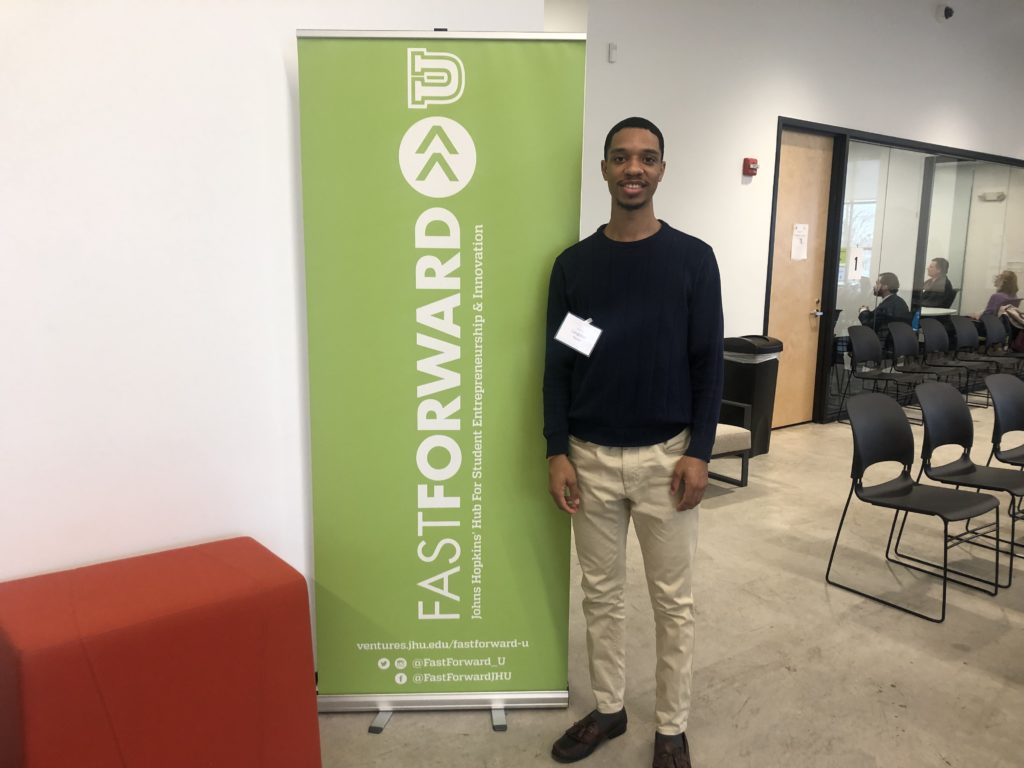
This building looks like a big, glorified storage unit, I note to myself, gathering my backpack as I lock up my car in the parking lot. It’s gloomy outside, and the bland, slate-blue building siding seems to match the mood. Why are so many people running around like maniacs? I crane my neck up and see a loud CrossFit sign. Got it. But I’m not here to work out. My eyes drift further left and settle on a green neon sign on the building’s edge: “Fast Forward U – Johns Hopkins University.” I’m in the right place after all.
I wasn’t sure what I was walking into. I approached the lobby elevator curious, but more than a bit skeptical. A loud ding, then I step inside and press ‘2.’ This doesn’t seem right, I think, ascending into the unknown. Then the doors open. My pupils swell to twice their size: it’s a massive, bright, buzzing room, alive with funky décor, neon greens and blues, sleek designs, and people. Lots of people. Ok, now THIS seems right.
Why am I here?
I’m here to cover a hackathon. Specifically, the Anna Baetjer Society for Public Health Practice at Johns Hopkins University is hosting its inaugural Policy Hackathon: a business case study-meets-tech pitch competition event aimed at tackling a major public health issue. I work for Ripple Effect, a private Maryland company that supports the public health and sciences communities. Ripple is sponsoring this hackathon today, and two of our public health-focused scientists will serve as judges for the event.

9:35 a.m. Calm before the storm.
Johns Hopkins graduate students are concentrated in the back of the room, separated into teams of four or so. They’re working diligently, going over last-minute notes and pantomiming hand motions for their presentations. The judges, meanwhile, are seated, snacking and chatting and wondering what they’re going to see and hear.
Today the students will tackle Maryland’s opioid epidemic, a public health crisis that has worsened in recent years. Maryland’s opioid death rate of 32.2 deaths per 100,000 people is more than double the national rate of 14.6 deaths per 100,000 people. Over the past 15 years, the number of opioid-related deaths has grown from 52 annually to 1,542 deaths as recently as last year.
With no clear solution to reversing these trends, research universities like Johns Hopkins have stepped up to help Maryland public health officials break down the problems and blueprint solutions. According to Mia Stange, seminar coordinator for the Anna Baetjer Society, today’s hackathon aims to accomplish that through “a blend of pragmatism and creativity” necessary to tackle the complex issues impacting well being in the world.
10:05 a.m. Morning Heats.
We’re off to the races. Vice President of the Anna Baetjer Society, Ekta Paw, gives a short and sweet breakdown of the day’s schedule and goals before introducing Dr. Shannon Frattaroli, Hopkins Associate Professor in Health Policy and Management, for the welcoming address.
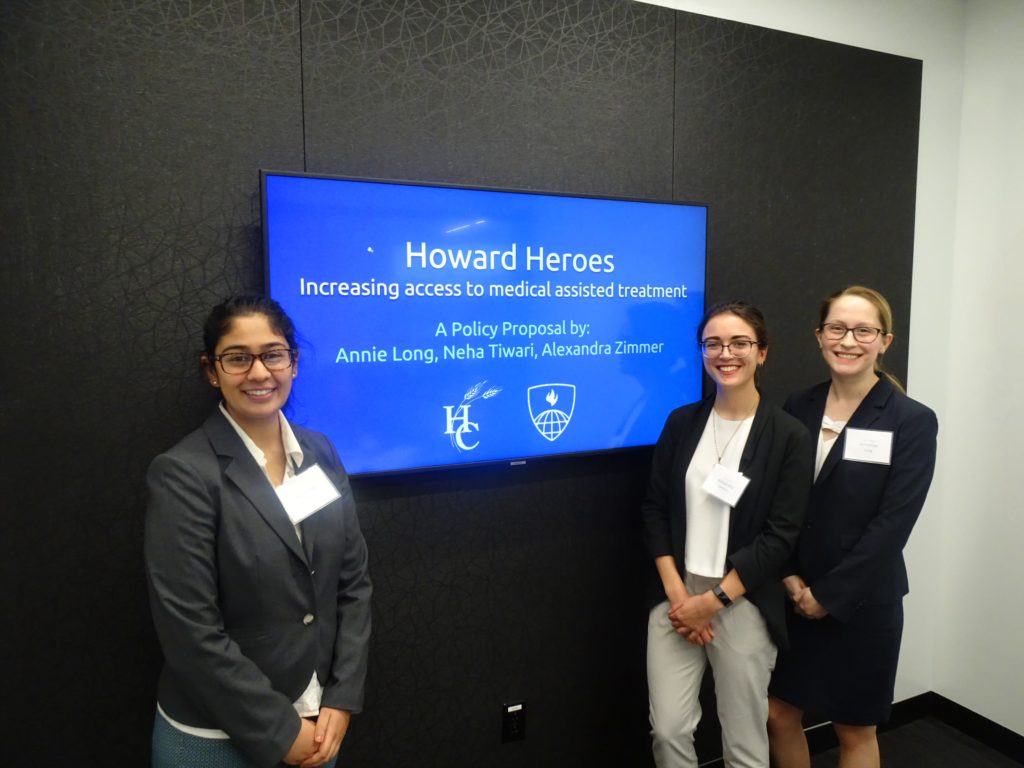
“For me,” began Dr. Frattaroli, “This is emblematic of everything public health can be, everything public health should be. Thank you for bringing this event to Baltimore.”
With the morning heats set to begin shortly, I learn more about how the day will work. The student teams competing have been pre-assigned to one of four specific Maryland counties—Howard, Carroll, St. Mary’s, and Frederick—and tasked with creating policy solutions that will reduce opioid abuse in their respective counties. They will do this by pairing the use of either naloxone or buprenorphine with community-based incentives to distribute that medicine.
I sat in on the Howard County team presentations, which took place in a small conference room. As I quietly set up in the back, the student teams shuffled into the room, breathing heavily and trying to hold their composure. The first group is up, with only ten minutes to present their solution. This time limit, combined with nerves, meant students spoke a lot faster to ensure they got all the information out.
“Time’s up,” the timekeeper announces from the side of the room. I can see the shock on the team’s faces; they didn’t cover everything they wanted. While a Q&A session allowed them to address concerns the judges had and present any last-minute information to sway votes, the time limit took a toll.
As Alexandra Zimmer, of Team 2, commented, “We only had 10 minutes to present and we could have easily done 3 hours for the amount of research.”
 11:15 a.m. Meet the judges.
11:15 a.m. Meet the judges.
As students left their presentation rooms, I heard sighs of relief. The final set of teams preparing their presentations drank their last bits of coffee and tea, trying to keep the nerves to a minimum. Students enter the room. The door swings shut. They greet the judges. The timer starts.
Team 4 from Howard County, one of the few teams with five students in their group, made it through their presentation under time and uninterrupted. Teammate Lara Silverman felt confident after presenting to the judges in the Howard County session, “This was a fun thing that I’d never done before. I usually don’t elect to do work outside of school, but this was a fun group.”
After the third rotation of teams presented, the hackathon judges sat in their conference rooms to deliberate which teams they would send to the final round. I noticed some came up with their decisions faster than others, who struggled.
“It was hard choosing a winner,” St. Mary’s County health officer Meena Brewster commented. “They all did an amazing amount of research and approached it differently in a good way.”
Ripple Effect judges Jessica Escobedo and Nicole Parker talked about their connection to Johns Hopkins and why they chose to judge the hackathon. “I am a JHSPH alum, and I work with healthy policies every day,” said Nicole. “So, when I got the email to judge I was excited.”
“For me I chose to judge,” said Jessica, who is Ripple Effect’s director of Science Policy. “It’s wonderful to see how students are developing new policy talk. The thing I love about hackathons is you bring all that creativity and energy to problems in a way people haven’t looked at it before.”
 12:05 p.m. A touching lunch.
12:05 p.m. A touching lunch.
Everyone is hungry and anxious, so lunch hour couldn’t come soon enough. As I sat down and unwrapped a sandwich, I noticed students weren’t talking much. The tension and anticipation to see if their teams will be finalists was palpable. A lot of stiffness and furrowed eyebrows in the back corner of the room.
Then, the president of the Anna Baetjer Society, Isabella Gomes, approaches the microphone and tells everybody to come to the central seating area. She announces that today will feature a guest speaker, who she introduces as Kevin Simmers. He’s a former narcotics officer who spent 30 years fighting the war on drugs in Maryland. In 2013, however, Simmers tragically lost his daughter Brooke to a heroin overdose that grew from a miserable painkiller addiction. This changed his perspective on everything.
“As a police officer and a guy who worked in narcotics,” Simmers reflected, “I felt like I had all the ideas, but I didn’t.” He continued to speak about how the work done today just isn’t a Maryland state problem; it’s a national problem. “Treatment, and the way we treat people with drug abuse problems, has to change.”
While losing Brooke shattered his world, Simmers remains committed to fulfilling his daughter’s wish for a place to live and get sober. He and his wife recently launched a halfway house in memory of his daughter. (It’s called Brooke’s House, located in Hagerstown, MD. Visit the website here.) Simmers’ story added a real, personal meaning to the day’s research and theoretical presentations, and served as an emotional transition to the afternoon.
1:30 p.m. Winners announced.
After Simmers concluded his remarks to applause, Anna Baetjer Society treasurer and hackathon organizer Cameron Schilling stepped up to the podium to announce the finalist teams. There wasn’t a drum roll, but I felt like I could hear the heartbeats and deep breaths of the students anxiously awaiting the results.
“Finalist…From Howard County, Team……2”
“Finalist…From Carroll County, Team……8”
“Finalist…From St. Mary’s County, Team……10”
“Finalist…From Fredrick County, Team……15”
After briefly celebrating their advancements, each finalist team quickly rediscovered their seriousness. They had to present their solution again, but this time in front of everybody. Teams briefly met and made last-minute changes based on feedback from the morning heats. Then, team by team, the students presented and made their strongest pitches for how to combat Maryland’s opioid epidemic.
 3:30 p.m. The awards hour.
3:30 p.m. The awards hour.
It doesn’t always happen this way, but each of the final teams won an award that was sponsored.
- Team 8 won the “Best use of Evidence” Prize (sponsored by the Institute for Health and Social Policy)
- Team 15 won the “Implementation” Prize (sponsored by the Center for Injury Research and Policy)
- Team 10 won the “Problem Identification” Prize (sponsored by the Center for Mental Health and Addiction Policy Research)
Ripple Effect sponsored the “Innovation Prize,” which was given to Team 2—or Howard Heroes, as they termed themselves—for the most new and creative idea for addressing the issue. The Howard Heroes idea involved incentivizing physicians to become DATA 2000-accredited (which enables them to prescribe and dispense drugs to treat opioid addictions) combined with introducing buprenorphine into the emergency room. This access to buprenorphine would help those who need immediate doses and last long enough until they can visit their doctor or receive proper treatment.
 4:05 p.m. What’s next for the hackathon and JHSPS?
4:05 p.m. What’s next for the hackathon and JHSPS?
During the networking reception that followed the intense day of competition, I got the chance to debrief with some of the organizers and judges. Isabella Gomes and Cameron Schilling of the Anna Baetjer Society were relieved that the inaugural hackathon went off smoothly, and especially encouraged by the event’s potential outcomes.
“What could possibly happen here,” Cameron stated, “is policies addressed to these counties can be applied on a national level.” Fellow organizer Mia Stange added, “This event shows the commitment we put in; we’ve already spoken to health officials about public health topics we can tackle in the future.” Given the participation and excitement, this policy hackathon may be something the JHSPS and the Anna Baetjer Society does for years to come.
Or, as Isabella put it, “We hope for this to be a legacy and something people expect yearly from public health and JHU.”
 5:30 p.m. Closing time.
5:30 p.m. Closing time.
I’m packed up, ready to find my way out and get off my feet. I thank the judges and organizers, say my final goodbyes, and approach the elevator. This morning, I entered the building confused—What’s a policy hackathon? Why the opioid epidemic? Why this strange CrossFit building? —but this afternoon, I’m leaving with clarity.
As I approach my car in its parking spot, I realize that this bland, unassuming building held something truly important inside. Amidst the fluorescent greens and bold blues, countless coffee cups and PowerPoint presentations were brilliant, passionate people of all ages trying to save lives and improve the community around us. Not because they’re required to, but because it’s the right thing to do.
That’s inspiring, and that’s why Ripple Effect sponsored this.
See you next year.

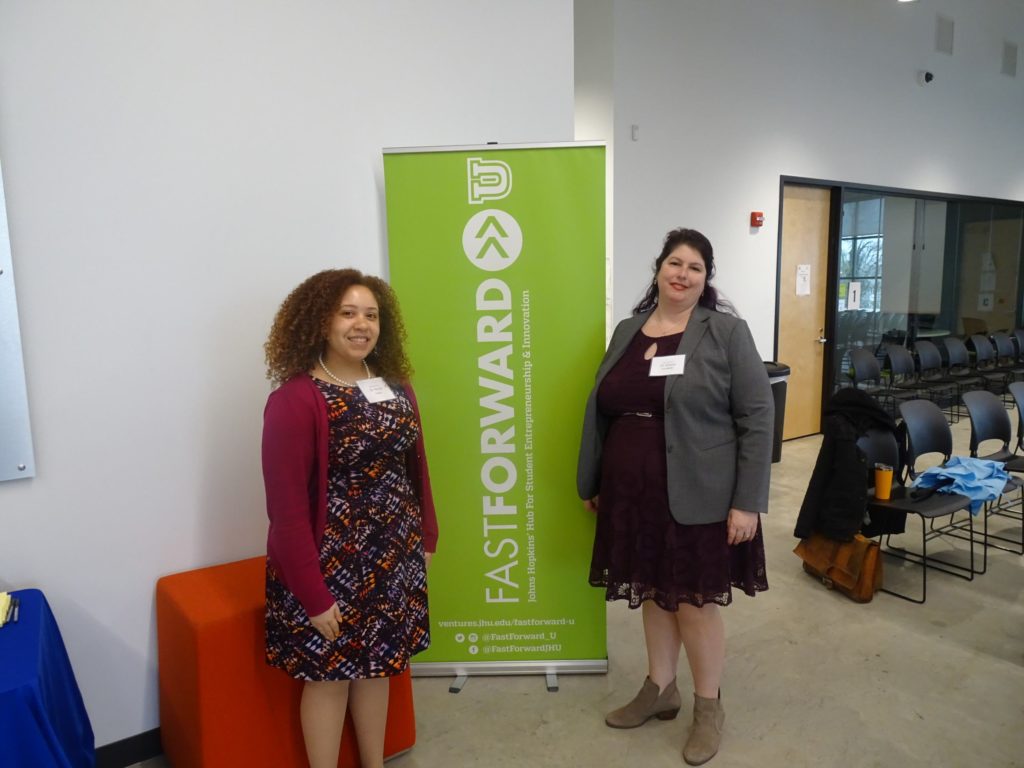 11:15 a.m. Meet the judges.
11:15 a.m. Meet the judges.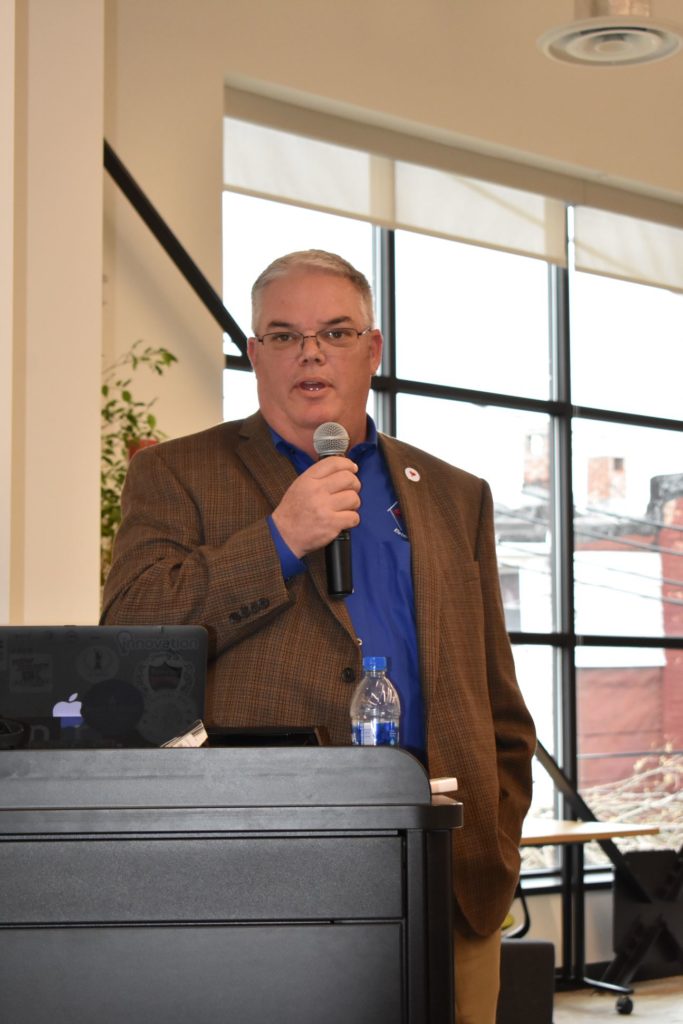 12:05 p.m. A touching lunch.
12:05 p.m. A touching lunch.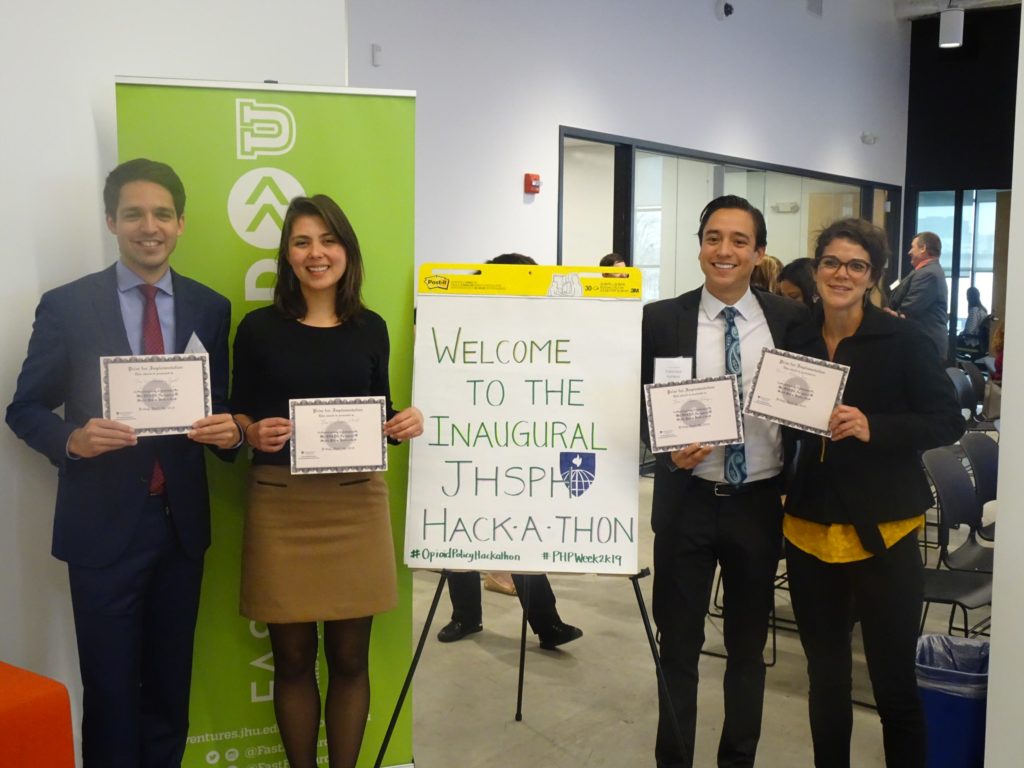 3:30 p.m. The awards hour.
3:30 p.m. The awards hour.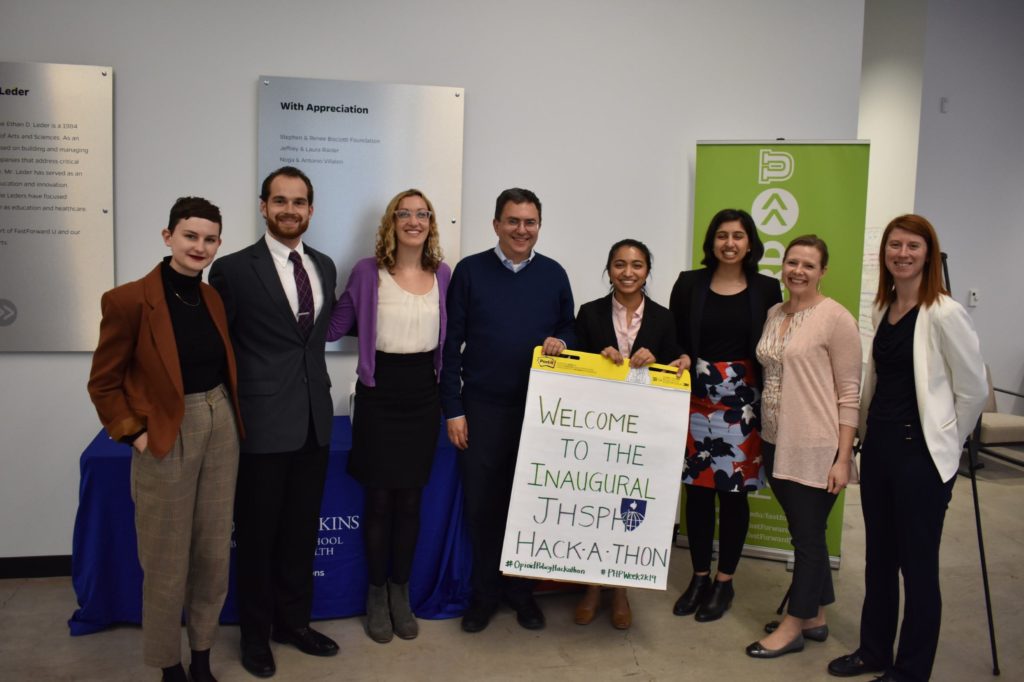 4:05 p.m. What’s next for the hackathon and JHSPS?
4:05 p.m. What’s next for the hackathon and JHSPS?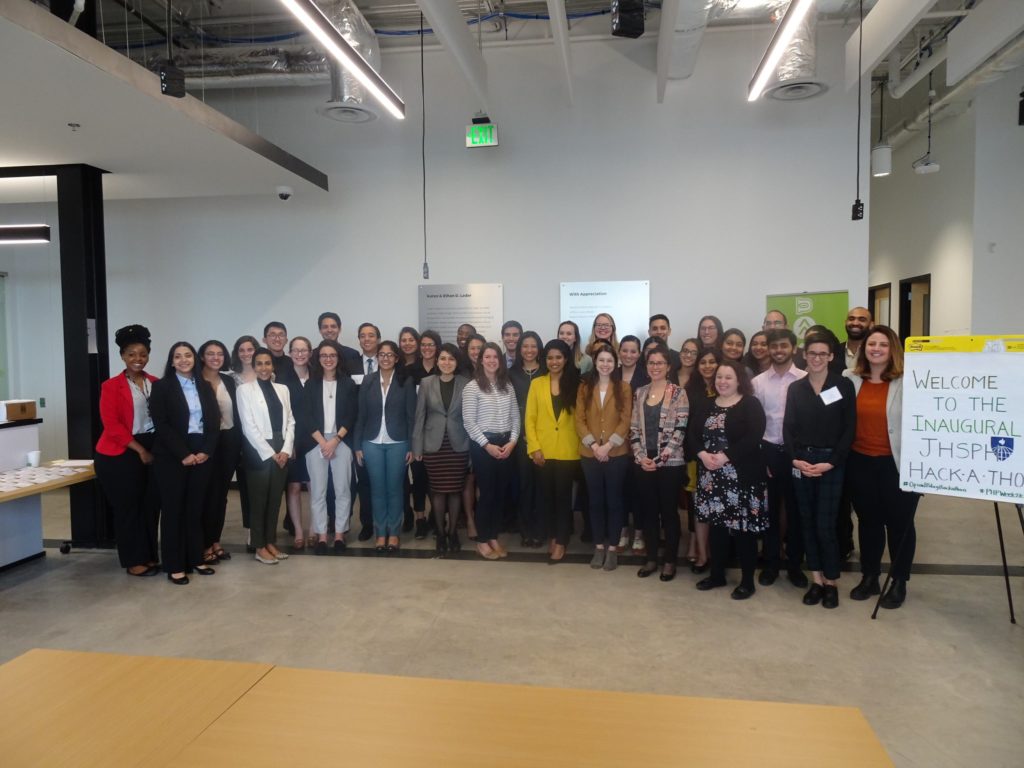 5:30 p.m. Closing time.
5:30 p.m. Closing time.


